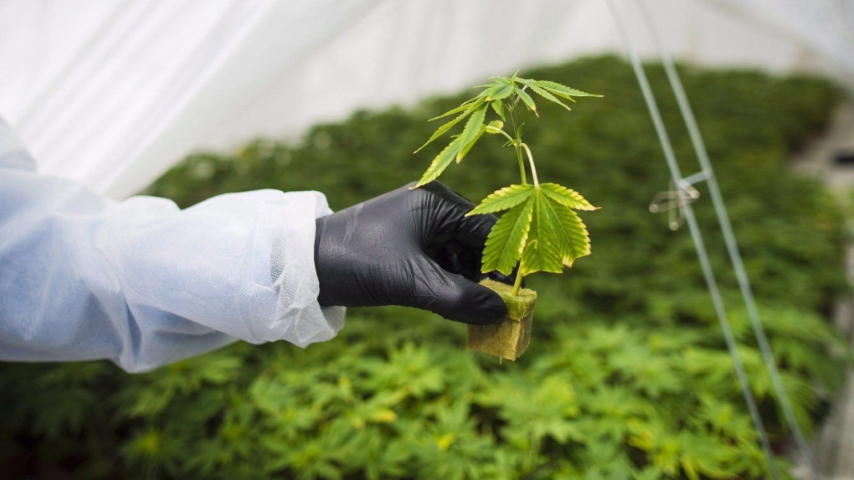
According to a comprehensive study in Ontario, using cannabis might contribute to anxiety, and existing anxiety disorders could become more severe. A photo taken in Fenwick, Ontario, on Tuesday, June 26, 2018, depicts a young cannabis plant. (Image credit: THE CANADIAN PRESS/ Tijana Martin)
A groundbreaking study conducted in Ontario has unearthed concerning findings regarding the correlation between cannabis use and the onset or exacerbation of anxiety disorders. Delving into health records spanning over a decade and involving a staggering 12 million individuals, the research revealed a stark reality: a significant percentage of those who visited emergency rooms due to cannabis-related incidents subsequently developed anxiety disorders.
The lead author of the study, Dr. Daniel Myran, shed light on the alarming statistics. He highlighted that within three years of an emergency room visit linked to cannabis use, a substantial portion—27.5%—of individuals encountered anxiety disorders for the first time. This figure starkly contrasts with the mere 5.6% prevalence among the general population seeking help for anxiety over the same period.
Dr. Myran emphasized the multifaceted nature of cannabis-related ER visits, which could stem from diverse causes such as hallucinations, extreme intoxication, or withdrawal symptoms. Importantly, many individuals exhibiting these symptoms had not initially presented with anxiety-related concerns.
The study refrained from specifying the quantity or type of cannabis consumed by patients, but Dr. Myran suggested that moderate to heavy usage or the intake of potent strains might contribute to the observed outcomes.
Furthermore, the research elucidated the heightened risk faced by cannabis users with pre-existing anxiety, with over 12% requiring emergency care due to worsening symptoms.
Of particular concern was the vulnerability of young males, aged up to 24, to developing new anxiety disorders following cannabis-related ER visits.
While some individuals may resort to cannabis as a means of self-medication for anxiety, Dr. Myran cautioned against this practice, citing insufficient evidence supporting its efficacy.
The findings underscored the imperative for enhanced awareness and dialogue regarding the potential mental health ramifications of cannabis use, particularly among susceptible demographics.
In light of these revelations, experts advocated for robust education campaigns to inform the public, particularly youth, about the risks associated with cannabis use and its impact on mental well-being.
As the discourse surrounding cannabis evolves, it is evident that a nuanced understanding of its effects on mental health is indispensable for safeguarding public health.















